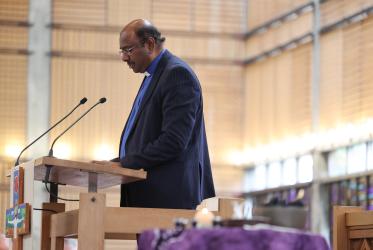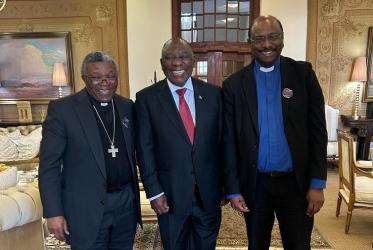During recent days, we have seen numerous tragic expressions of the special vulnerability of migrants and migrant workers. The 28 Ethiopian migrant workers reportedly executed by ISIS in Libya, the hundreds of deaths on the Mediterranean Sea, and the xenophobic violence and killings of migrant workers in South Africa are only the most recent illustrations of the threats against people engaged in the simple and universal human search for a better life for themselves and their families – often driven to perilous risk by desperation, conflict and oppression in their home countries.
The spasm of violent attacks against migrants in South Africa has a special poignancy, in light of South Africa’s historic leadership in fighting against racial discrimination and exclusion. Over recent weeks and months, xenophobic violence has resulted in the killing of several immigrants, destruction of property, and the displacement of thousands of individuals to shelter in makeshift camps.
The victims of these attacks represent the same neighbouring countries and people who stood with the marginalised majority of South Africans during the dark days of the Apartheid era. Where is the recognition of that African solidarity, and the commitment to the philosophy of ‘Ubuntu’?
These developments not only damage the fabric of South African society, but also undermine South Africa’s social, political and economic stature, relevance and influence in the region and the wider world. We urge the South African government to demonstrate leadership to bring the situation under control and promote the observance of human rights and adherence to the standards and norms as contained in international human rights instruments.
We are in solidarity with all the affected individuals and their families, and call for their protection, restitution, and for the criminal accountability of those responsible for the attacks against them. We also stand with the churches, and the vast majority of the people of South Africa, who have publically expressed their outrage at these events. We support calls such as that issued by Uniting Reformed Church in Southern Africa for the government to “confront the rising tide of racism, ethnocentrism and xenophobia in South Africa,” and for South Africans and people across the globe to “acknowledge ‘others’ in their difference, to welcome strangers even if their ‘strangeness’ sometimes threatens us, and to seek reconciliation even with those who have declared themselves our enemies.”
The Holy Scriptures of Christian and other great faiths contain clear teachings on believers' responsibility to show hospitality to strangers and to protect society's most vulnerable members, including foreigners. The Bible demands that, "The strangers who sojourn with you shall be to you as the natives among you, and you shall love them as yourself; for you were strangers in the land of Egypt" (Leviticus 19:33-34).
Where people live in multi-cultural, multi-ethnic, multi-religious and multi-lingual societies, there is a great danger in times of social and economic stress of communities succumbing to fixed notions of ‘us’ and ‘them’, and of blaming the ‘other’. May the Bible guide us to overcome differences and lead us to a liberating unity!
"For just as the body is one and has many members, and all the members of the body, though many, are one body, so it is with Christ." (1 Corinthians 12: 12).
Rev. Dr Olav Fykse Tveit
General Secretary
World Council of Churches



